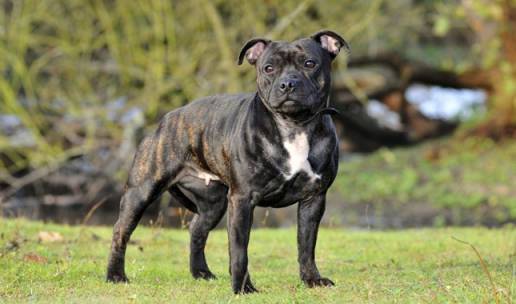When you come down with a cold or the flu, is it possible to pass these illnesses on to your dog? That’s a question many people are asking, especially as we head into flu and cold season. With the number of flu outbreaks increasing in the news, it can make you worry about your entire family, including your fur baby. If you get sick and your fur baby snuggles up trying to make you feel better, is it safe to have such close contact?
Connect with a verified veterinarian in minutes. Licensed vets are available 24/7 to answer your questions. No need to worry about your furry family member.
These are some great questions and we’ve done the research to find the answers for you. Read on to learn if your canine companion can catch your cold or flu.
Human Cold Viruses & Dogs
Human colds are caused by a number of viruses, which cause the same types of symptoms. The most common cold virus in humans is the rhinovirus; others include the human coronavirus, adenoviruses, human respiratory syncytial virus, etc. Colds are passed on to others through airborne droplets from sneezing and coughing. Unfortunately, you can come in contact with these viruses even if they’re on a surface, such as a tabletop, a counter, doorknob, etc. These viruses can live for up to 18 hours on surfaces and can be transmitted from our hands to our eyes and nose, starting off an infection. Yuck!
Typical cold symptoms include:
- Runny and/or stuffy nose
- Watery eyes
- Cough
- Fatigue
- Headache
- Muscle aches
- Sneezing
- Chills
- Sore throat
As you can see, colds are “fun!” Not! What about your pup? Can dog catch a cold from you? The short answer is no. Your dog will not catch a cold from you. Generally speaking, human cold viruses are species specific, meaning they usually stay within one species—that is us, humans. Your dog can’t come down with a cold from you; however, dogs can catch canine colds.
Canine Cold Viruses
While your canine fur baby won’t catch your cold, he could catch a dog from another dog. Who knew? Dogs have their own cold viruses; but don’t worry. Just as human colds usually stay with us, you can’t catch a cold from your dog. Phew—that’s certainly good news! Colds in dogs are also caused by various viruses, which bring on similar symptoms to a human cold. Your pup may sneeze, have a sore throat, runny eyes, stuffed/runny nose and can even have a cough.
When you look at him, it’s obvious he’s not feeling good. He may even lose his appetite and not feel up to his normal walks, etc.
A doggie cold is passed on through contact with another sick dog. This can include sharing a water dish or food dish, toys, etc. If your dog seems to have a cold, it’s a good idea to keep an eye on him. If his symptoms seem to be severe or get rapidly worse, then he could have a more serious infection. This is especially true if your dog is elderly or very young. It’s also good to carefully watch your pup’s cold symptoms if he’s a breed that has a short snout. These breeds are called brachycephalic dogs, which is because they are more prone to a number of respiratory problems and cold symptoms may become extreme and include:
- Wheezing
- Snorting
- Increased snoring
Brachycephalic dog breeds include:
- Boston Terriers
- Boxers
- Pugs
- Shih Tzus
- Lhasa Apsos
- Pekingese
- And more
Dogs with shorter, snubbed snouts can become more congested by mucus trapped in the airways, making them more prone to secondary infections such as pneumonia. So, if you have a short-snouted pup, be sure to keep an extra eye on his cold symptoms.

Review symptoms, medications & behavior to keep your pets healthy with a Vet Online in just minutes.
Ask a Vet Live NowWhat is the Treatment for a Canine Cold?
If your dog’s cold symptoms are not severe, they can be treated pretty much as you would treat your own cold. Try these cold remedies for your fur baby:
- Keep activities to a minimum, especially if the weather’s bad. This includes walks, vigorous play, etc.
- Keep your put comfortable—make sure he’s warm enough and in a dry place
- Feed him healthy food that’s easy to digest, such as boiled chicken and rice. He can even eat chicken soup, as long as it’s low-sodium and doesn’t include any ingredients he’s allergic to or that he has intolerance to.
- Place a warm or cool mist humidifier in the room with your pup. The humid air may make breathing easier. Be sure to watch for signs that your dog’s having a harder time breathing. Humid air can cause breathing trouble in some dogs.
- Keep him hydrated by keeping a bowl of water where he can easily reach it.
- Keep his face and nose cleaned off. You can use a soft, damp warm cloth or even a doggie wipe to keep his eyes and nose clean.
If these remedies don’t seem to ease your dog’s cold symptoms, and/or if he becomes dramatically worse, then it’s time to call the vet for an appointment. Your fur baby could have something worse than a cold and needs to be checked as soon as possible.
Are There Diseases that Can Pass Between Humans and their Dogs?
Yes, but these are well known and include:
- Roundworm
- Ringworm
- Rabies
- Lyme Disease
- Scabies
Be sure to keep your pup’s vaccinations up to date and you shouldn’t have to worry too much about contracting one of these illnesses from your canine companion.
Can Dogs Get the Flu from Humans
Can my dog catch my flu? Generally speaking, your dog can’t get the flu from you. However, there are canine flu viruses that are just as virulent as the human versions. Dog flu, or canine influenza A H3N2 can be a serious illness for your fur baby. Canine flu is also spread through close contact, just like human influenza. The virus is spread in a similar way to a cold—through droplets that can become airborne through barking, coughing or sneezing. Also, if there’s a sick dog at the kennel, in the dog park, etc. other dogs are at risk of exposure and becoming ill.
Symptoms of Canine Influenza
The symptoms of canine influenza can include:
- High fever
- Reduced appetite
- Watery eyes (or discharge)
- Sneezing
- Cough
And not all dogs will show any sign that they’re sick, making this a trick illness for humans to detect.
You’ll be happy to know there is a vaccination your pup can get; while it won’t keep him from catching the flu, he won’t become as ill. He’ll have a “lighter” version of the illness that typically doesn’t last as long.
Dog Flu Treatment
If you suspect your dog is ill with the flu, it’s a good idea to make an appointment with the vet. Just as in humans, canine influenza can develop into a more serious respiratory illness. However, most dogs go on to recover with no problems. Your vet may choose to prescribe your pup an antibiotic or another medication to treat the flu. The antibiotic will not cure the flu but will keep a secondary infection (such as pneumonia) from developing. The vet will most likely advise that your dog should be isolated from other pets, including other dogs and even cats. This will keep the illness from spreading to them.
Your precious fur baby will also need lots of rest. Think of how you feel when you have the flu and all the rest that needs to get better. It’s the same for dogs. While he’s sick, it’s best to avoid long walks and other vigorous types of activities. Your pup also needs to stay hydrated, so make sure his water bowl is nearby and filled with fresh, clean water.
Other Dog Illnesses
There are canine illnesses that can resemble a dog cold or canine influenza, and these can be quite serious infections. Let’s take a look.
Kennel cough
This is a highly contagious respiratory illness that can infect dogs. It’s generally spread in places such as kennels (hence the name “kennel cough”), boarding facilities, etc. Anywhere dogs get together can be dangerous. While some people call this a dog cold, it’s much worse. Kennel cough is caused by a virus which can live on surfaces. Your dog doesn’t have to even come close to another dog to become infected. He could simply pick up a toy, for instance, and become infected.
What does a dog cold sound like? One of the main signs of infection is a horrific cough. The dog will have a hacking cough, which some people say sounds like a honking goose. The cough may even make the dog vomit and gag. Symptoms generally start within 4-10 days after exposure. The illness may be treated with antibiotics or some vets may take a watch and wait tactic. Other conditions that mimic cold symptoms: there are other conditions that can mimic cold symptoms in dogs, besides a cold, dog flu or kennel cough. These include bacterial infections, parasitic infections (heart worms and roundworms), fungal infections, allergies or even pneumonia.
If your dog seems to be sick with a cold, and you’re not sure how serious it is, then it might be a good idea to get him checked out by the vet. This especially true for puppies or senior dogs, as both can become seriously ill very quickly. Also be sure to get your dog checked if he has a short snout and seems to be having difficult breathing, etc. The vet may want to wait and see if the illness develops further before treating, but at least you and your vet will both be monitoring your fur baby for anything more serious than a cold. If something does develop, you can get fast treatment and get him back to feeling his lovable self again!
Connect with a verified veterinarian in minutes. Licensed vets are available 24/7 to answer your questions. No need to worry about your furry family member.

Julie
Julie is a graduate of the University of North Carolina, Wilmington, where she studied Animal science. Though contrary to the opinion of her parents she was meant to study pharmacy, but she was in love with animals especially cats. Julie currently works in an animal research institute (NGO) in California and loves spending quality time with her little cat. She has the passion for making research about animals, how they survive, their way of life among others and publishes it. Julie is also happily married with two kids.
Review symptoms, medications & behavior to keep your pets healthy with a Vet Online in just minutes.
Ask a Vet Live Now



